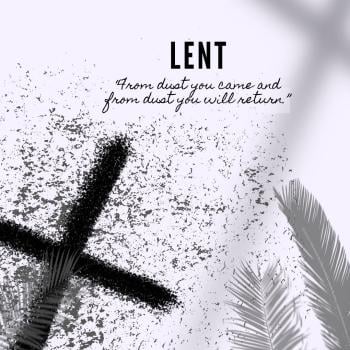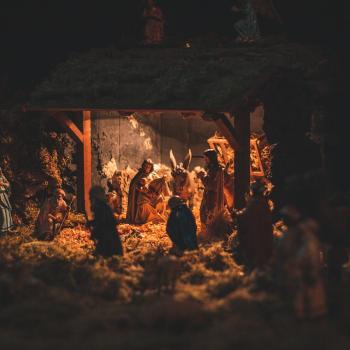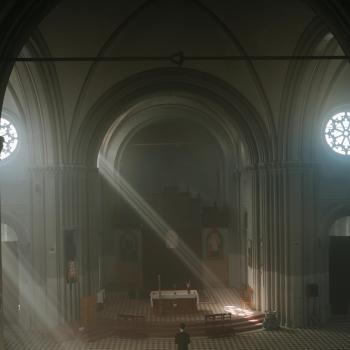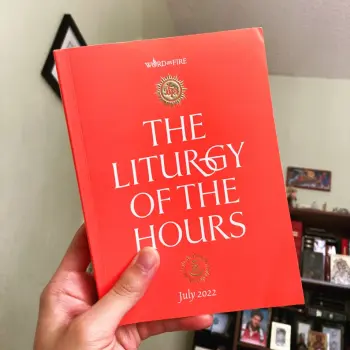Where do you look for a theologian to write about prayer? Pope John Paul II had tasked Cardinal Ratzinger to create the new Catechism. The Cardinal wanted a representative of Eastern theology. Amid the ruins of war, he stumbled upon Fr. Jean Corbon, a French priest living and working in Beirut, Lebanon. This priest wrote the fourth part while sheltering from the bombs of war. This fourth part focuses on Christian prayer. He recognized the Trinitarian dimension of Christian prayer, lived out especially in the liturgy. He focuses on this in his book The Wellsprings of Worship. We should consider this book a new spiritual classic for anyone who wants to go deeper in living the liturgy. As we celebrate Trinity Sunday, we can learn how the liturgy is a portal to the mystery of the Trinity.
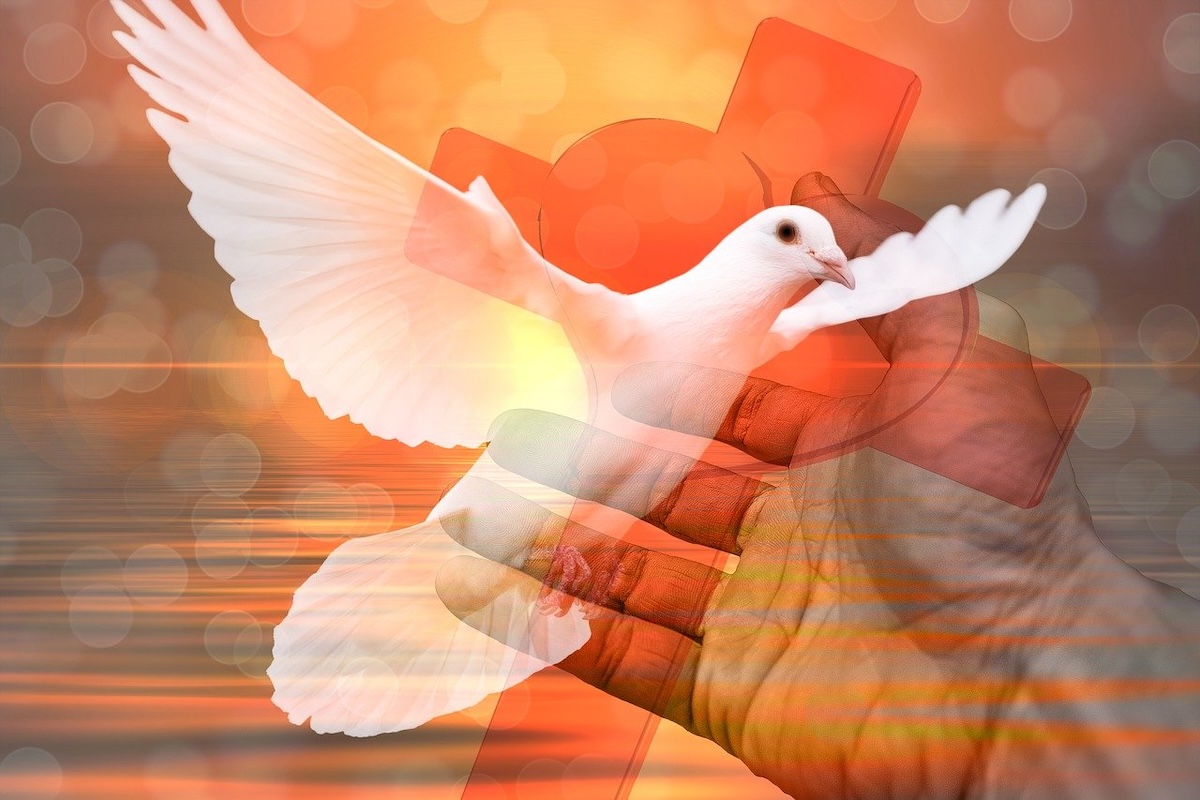
Blessed Trinity | Courtesy: Pixabay.com
Growth in Understanding through the Liturgy
It can often seem difficult to have contact with the Book of Revelation, the final book in our Bible. However, with a liturgical mindset, we gain understanding and begin to receive the spiritual fruit deposited in this book.
Then the angel showed me the river of life-giving water, sparkling like crystal, flowing from the throne of God and of the Lamb down the middle of its street. On either side of the river grew the tree of life that produces fruit twelve times a year, once each month; the leaves of the trees serve as medicine for the nations (Revelation 22:1-2).
Father Jean Corbon comments on this passage at the beginning of his liturgical masterpiece The Wellspring of Worship.
In this final vision of the seer of Patmos glimpses the indescribable energy of the Blessed Trinity at the heart of the messianic Jerusalem, that is, the Church of the last times, in which we are now living (Jean Corbon, The Wellspring of Worship, p. 29).
Overcoming the Difficulty of Living the Faith
We feel too removed from the reality of the liturgy. It seems like the Mass has nothing to say to us. We need to learn to drink from the waters of the liturgy. The more we immerse ourselves in the reality of the liturgy, the more we allow it to nourish our minds and strengthen our spirit. For this reason, it is good to think even about theological concepts like the Trinity because it draws us deeper into the faith.
When we celebrate the Holy Trinity, we celebrate the center of our Catholic faith. When we come to celebrate the liturgy, we tap into an enormous amount of energy since we make contact with the living God. We become witnesses of God’s plan, predetermined by the Father and carried out by the Son and the Holy Spirit.
Revelation through Liturgy
Through the liturgy, God reveals himself as Trinity and invites us to participate in his divine life. We begin the Mass “in the name of the Father, and of the Son, and of the Holy Spirit.” When we begin Mass, we call upon the Trinity as we try to live out the beauty of revelation through our experience of the liturgy.
We enter a continuity of revelation throughout all human history that stretches all the way back to the Hebrews who first received God’s word. In today’s first reading, Moses reminds the people of Israel of the privilege that they have received through divine revelation.
Did a people ever hear the voice of God speaking from the midst of fire, as you did, and live? Or did any god venture to go and take a nation for himself from the midst of another nation, by testings, by signs and wonders, by war, with strong hand and outstretched arm, and by great terrors, all of which the LORD, your God, did for you in Egypt before your very eyes (Dt. 4:32-33)?
Continuing of God’s Revelation in the Church
God’s revelation does not finish in the Bible. With the coming of Jesus, we find a fuller revelation of God that comes to its completion with the revealing of the Holy Spirit. As Trinity, God invites us to participate in his divine life through the sacraments.
From the beginning, the revealed truth of the Holy Trinity has been at the very root of the Church’s living faith, principally by means of Baptism. It finds its expression in the rule of baptismal faith, formulated in the preaching, catechesis and prayer of the Church (Catechism of the Catholic Church, 249).
Faith through the Mystery of the Trinity
St. Athanasius, great defender of the faith against the heresy of Arianism, reminds us that the faith comes to us through the mystery of the Trinity.
For grace and the gift of the Trinity are given by the Father through the Son in the Holy Spirit. Just as grace is given from the Father through the Son, so there could be no communication of the gift to us except in the Holy Spirit. But when we share in the Spirit, we possess the love of the Father, the grace of the Son and the fellowship of the Spirit himself (Crossroads Initiative, “Trinity: Three Persons, One Creative, Energizing Reality – Athanasius”).
No matter what we may be going through, it is good to tap into the power of the liturgy and receive God’s creative, energizing reality made available to us through the mystery of the Trinity. Jean Corbon, the priest who wrote the fourth part of the Catechism among the bombs of Beirut, was able to enter into prayer and communion with God through the power of the liturgy, caught up in the power of the Trinity. May God preserve us from living a situation as critical as the one that Fr. Corbon faced. However, in the midst of our own difficulties and tragedies, let us turn our hearts to God in prayer, especially through the transforming power of the liturgy, celebrating the Blessed Trinity who looks over us always.
What do you think? Comment below.
Subscribe to the newsletter to never miss an article.





